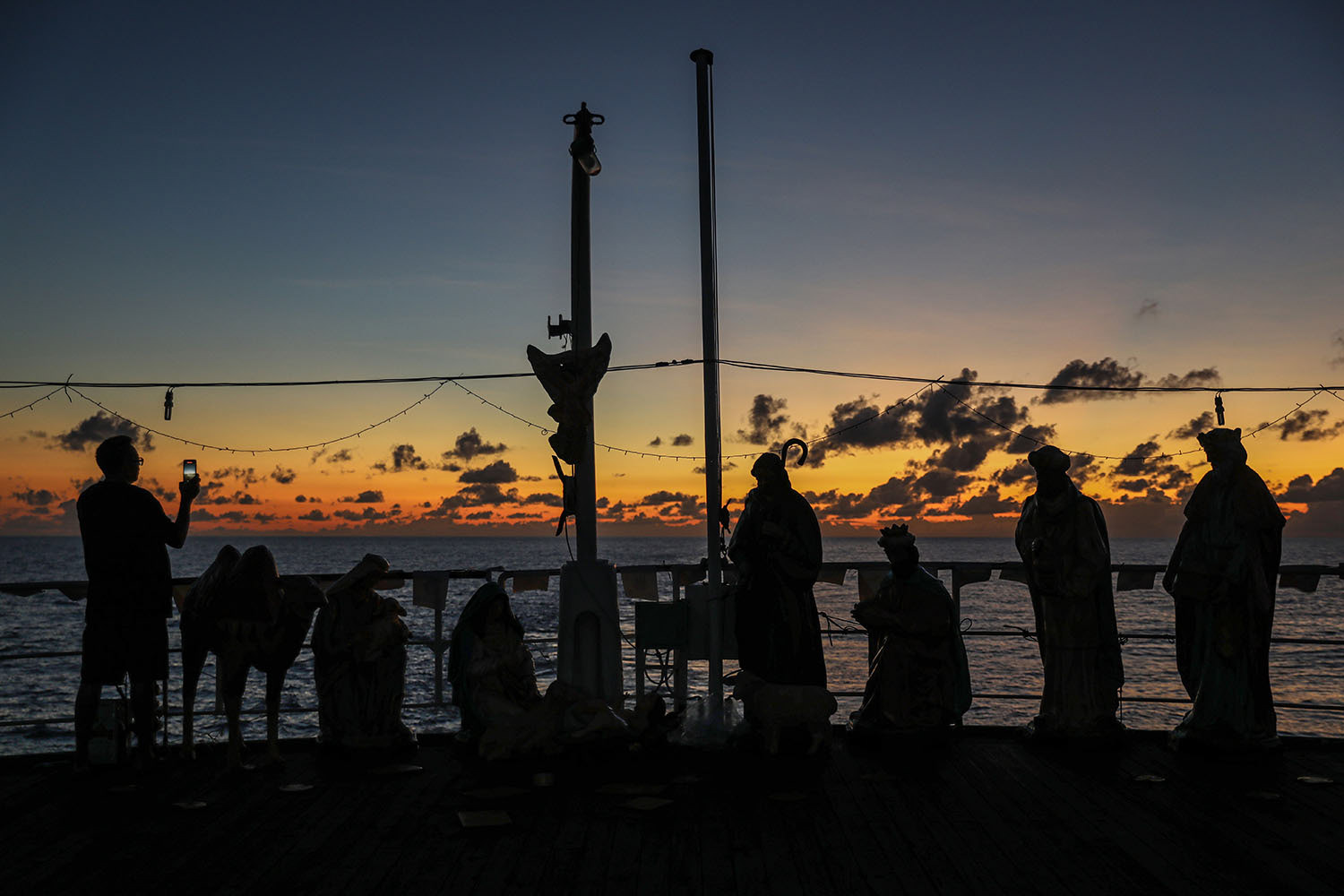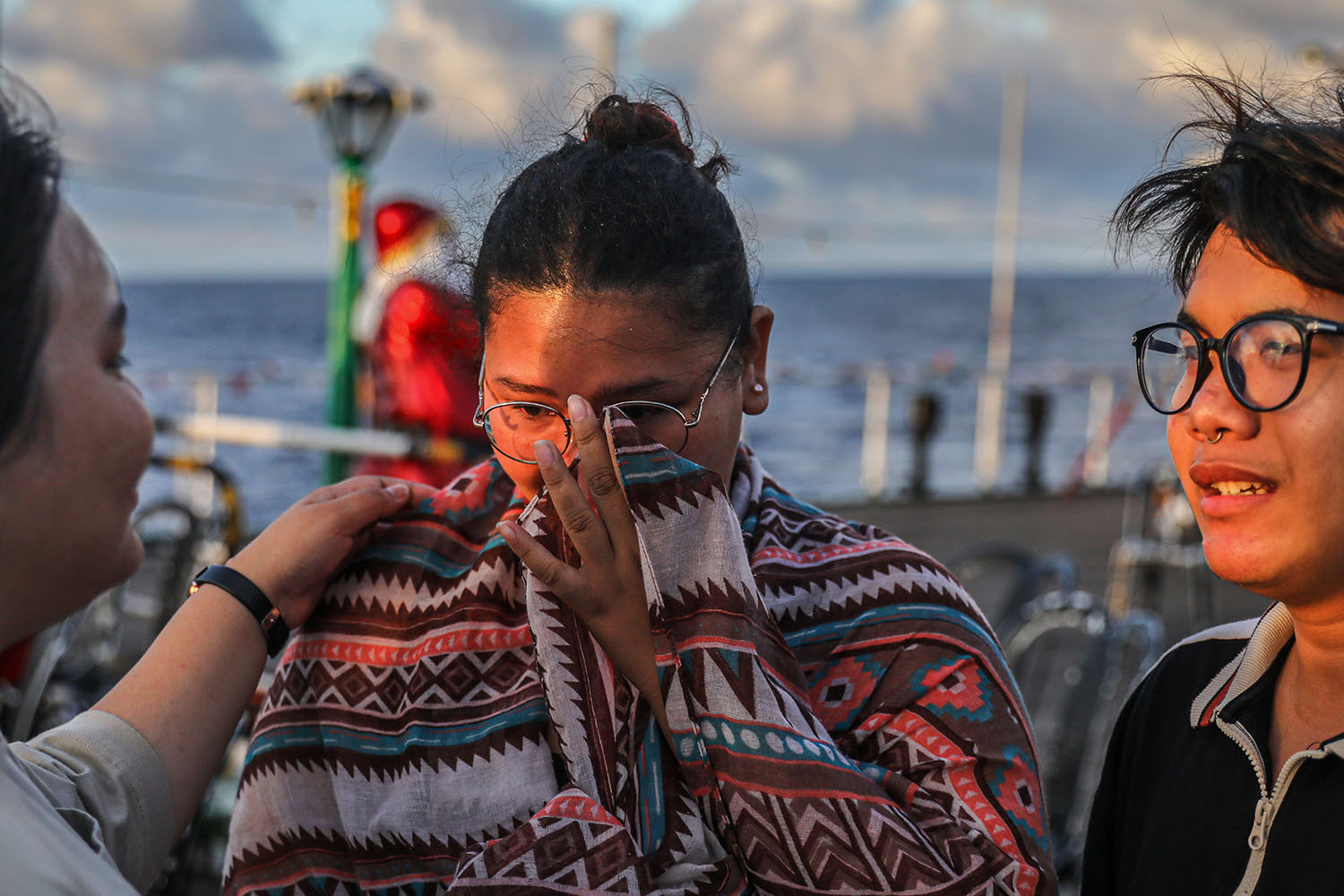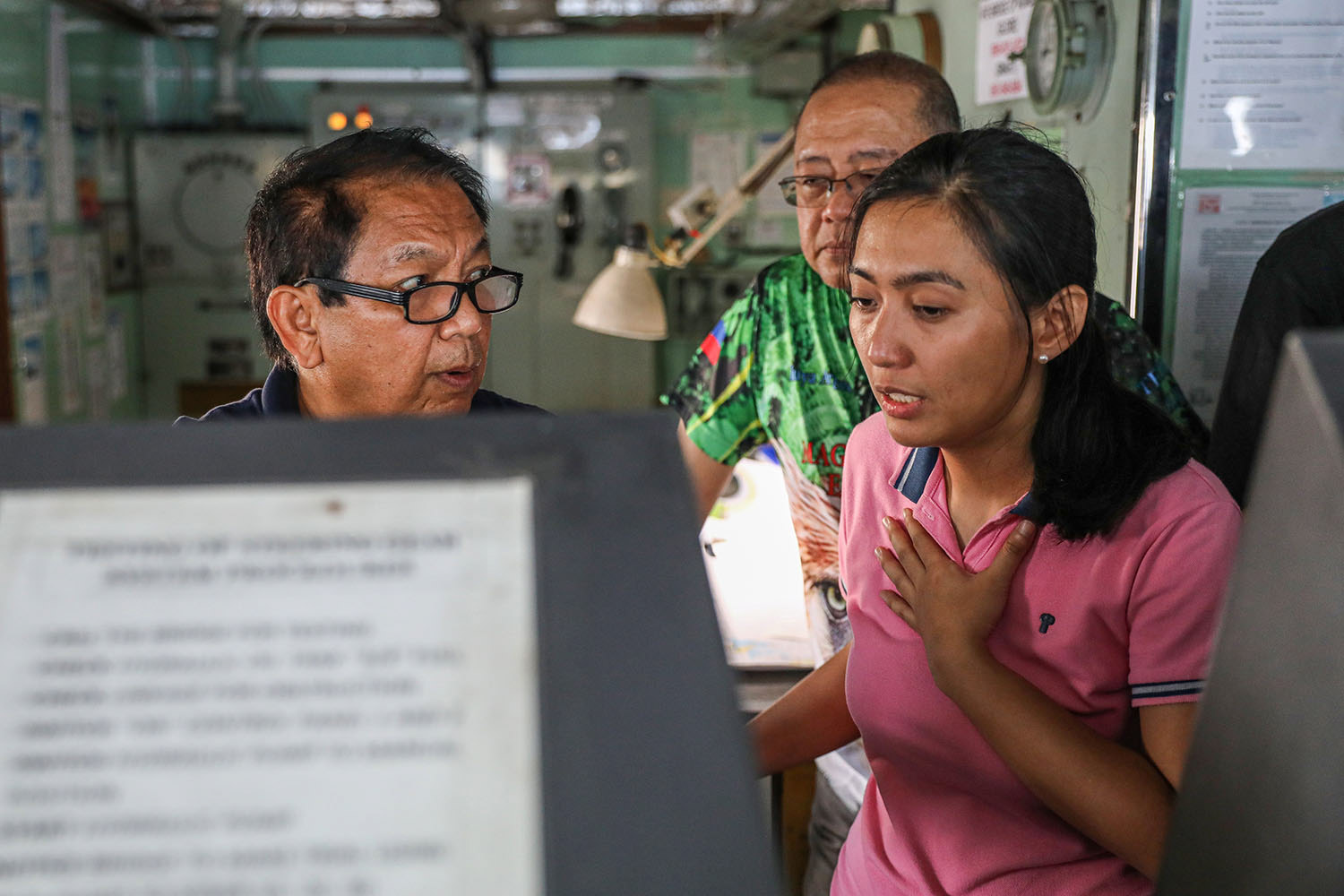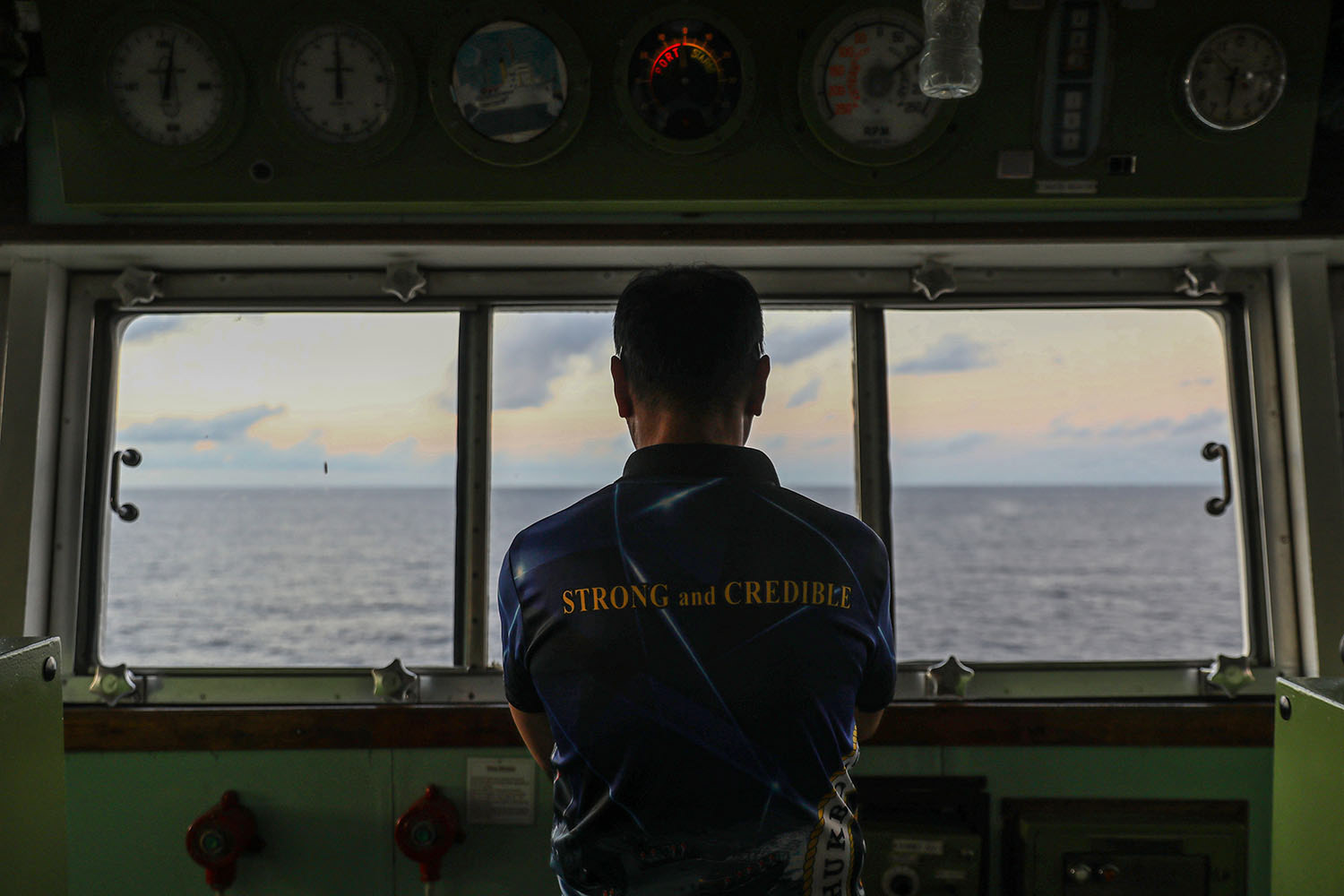A green dot suddenly appears on the radar screen of the Philippine vessel, Kapitan Felix Oca. Beep, beep, straight ahead, a large ship sailing towards us at 19 knots, without identification code.
“Holy shit,” says chief officer Romy Concon. He grabs a binoculars and scans the horizon. There looms the silhouette of a warship: the cannon on the foredeck stands out clearly against the blue sky. An identification code now appear: Chinese Coast Guard.
After more than 16 hours of sailing, the civilian ship turned back because it was intimidated by Chinese warships. Previously, a Filipino ship was sprayed with water cannon by a Chinese vessel, which caused serious damage.
Back on the back deck on the way home, the Catholic mass seemed to turn into some kind of therapy session. Some cried, cursed, and spoke with clenched fists. One trans woman said she was always bullied at school, 'just like the Chinese are doing to us now'.
Approaching the port of San Fernando in the city of El Nido, Kapitan Felix Oca was greeted enthusiastically by dozens of local fishing boats. The ships circled with cheers and salutes.


It couldn't actually end well. The Kapitan Felix Oca left the Philippine island of Palawan a day earlier with a coalition of dozens of activists, politicians, youth leaders and representatives of affected fishermen on board to work together to send a strong message to China. This is printed, among other things, on their T-shirt: Atin Ito ('This is ours'), and appears more subtly when they raise three fingers for a selfie on the boat deck (the letter W stands for the West Philippine Sea). The aim of this first civilian mission to the disputed sea: to bring Christmas presents to the so-called frontliners – Filipino fishermen and soldiers who do their work there.



It seems more like a geopolitical crusade. “Lord, bless these brave ambassadors of our sovereignty,” a priest prays before sailing. After which he places a wooden cross on his shoulder and climbs up the stairs. On the aft deck is a life-size nativity scene, complete with camel and three Wise Men from the East.
Therapy Session On The Back Deck
Back on the quarterdeck, the Catholic mass appears to have turned into a kind of therapy session. There is crying, swearing and speaking with clenched fists. Everyone appears to have their own reasons for being on board. A trans woman says that she has always been tyrannized at school, 'just like the Chinese are doing to us now'. A student leader says: 'The fact that we have brought all these social groups together is already a success.'
Priest Reyes places his hand on shoulders here and there and speaks comforting words: 'You are still young. But setbacks are normal in life. After a night's sleep you just try it again in a different way.'
Convoy leader David is not very disappointed. “We have sent a clear message to China and to the international community: this sea is ours.” Moreover, according to her, the confrontation had been taken into account. With a satisfied smile: 'We brought the majority of the donated gifts and supplies to the frontliners in a small wooden ship. The Chinese didn't notice anything.'



***
Documenting the journey of a humanitarian mission with the Atin Ito (This is Ours) coalition consisting of dozens of activists, politicians, youth leaders, transgender, volunteers and fishermen.
The aim of this first civilian mission to the disputed sea is to provide Christmas gifts to those on the front lines – the fishermen and Filipino soldiers who do their work there.
*Part of the text translated from Dutch, written by Noël van Bemmel. For de Volkskrant.
